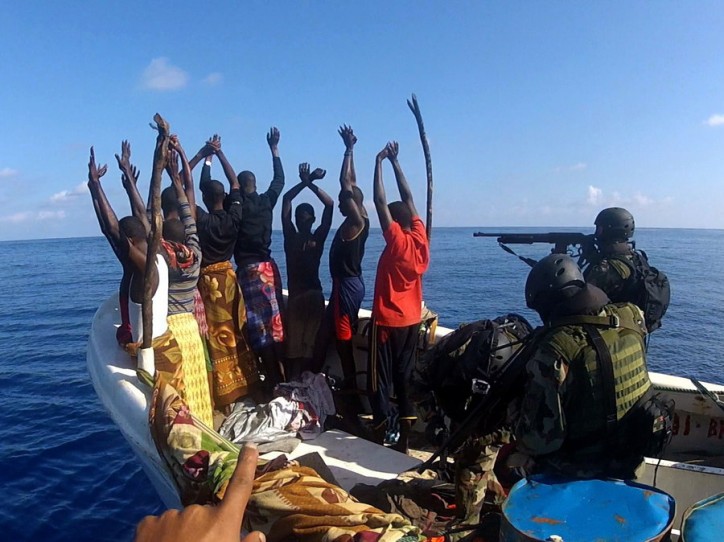With the Philippine-based terrorist group, the Abu Sayyaf, executing three Vietnamese sailors this month, a regional watchdog on piracy has urged the shipping industry to exercise extreme caution and even re-route their vessels to avoid the dangerous areas.
“Although there have been no new abductions since May, the situation is not yet stable,” ReCAAP Executive Director Masafumi Kuroki said Tuesday during the release of its half-yearly update on the status of piracy in Asia.

Regional Cooperation Agreement on Combating Piracy and Armed Robbery against Ships in Asia, or ReCAAP, is an anti-piracy watchdog.
“We keep our advise to the shipping industry to reroute the ships where possible against the potential threat or otherwise remain very vigilant,” Kuroki said.
Earlier this month, the Abu Sayyaf group killed a Vietnamese sailor in the Sulu village of Buhanginan. The murder comes close on the heels of the beheading of two other Vietnamese sailors in Basilan, where a total of six were abducted in November last year from the ship MV Royal.
The twin tragedies for the Vietnamese come at a time when countries along the Sulu and Celebes Sea have come together to strengthen patrols for tackling the menace of piracy and terrorism.
The trend is significant because billions of dollars worth of commodities are shipped on merchant vessels in the vicinity of the Sulu Sea and Celebes Sea region, according to industry estimates.
A month ago, Indonesia, Malaysia and the Philippines, or INDOMALPHI, launched a trilateral maritime patrol agreement to face piracy, armed robbery against ships, kidnapping of crew at sea and other transnational crime along the shared borders of these countries.
Given the vast areas to be patrolled, three maritime command centers have been established in Bongao, Philippines, Tawau, Malaysia and Tarakan, West Kalimantan. Work is also in progress to approve and sign Standard Operating Procedures and IRRs or Implementation Rules and Regulations.
Nevertheless, concern remains due to the threat from pirates, terrorists and robbers. Since March last year, 59 crew members have been abducted in the Sulu-Celebes Sea and waters off Eastern Sabah, of which at least four were killed and 16 are still in captivity. So far this year, three actual incidents and four attempted incidents of abduction of crew from the region have been reported.
After abductions, ransom is demanded by organizations such as the Abu Sayyaf group, he said.
“Some shipping companies are avoiding this area and opting for other routes even though it takes more days and pushes up the cost,” Kuroki said.
He added that in view of the high level of threat, last month, the Philippines Coast Guard, or PCG established a Recommended Transit Corridor, or RTC, between Moro Gulf and Basilan Strait.
RTC is a route designated for transiting ships to reduce the risk of collision and minimizing threat of piracy. It is monitored by law enforcement units that are closeby. A similar corridor is also recommended along Sibutu, he said.
To enforce appropriate security levels, last month, PCG also took over the security operations for all seaports in Mindanao, he said, adding that all Philippines-registered ships operating in the country’s waters are also being allotted a special number, to prevent them from being used by perpetrators to abduct crew for ransom or carry out acts of piracy, sea robbery and terrorism.
“There has not been any case reported for abduction of crew in the region in the last two months and it is hoped that the trend will continue as the regulations enforced by the Philippines authorities is producing results,” he said.
Another positive development is that the total of 36 incidents of piracy and armed robbery against ships — including 30 actual and six attempted — reported in Asia during the first half of the year, was down 22% from the same period in 2016, Kuroki said.
Source: Platts